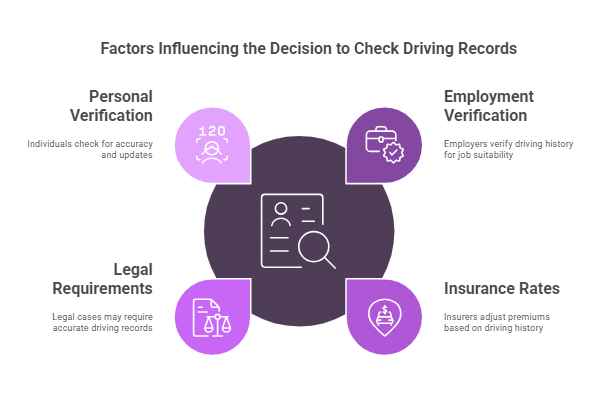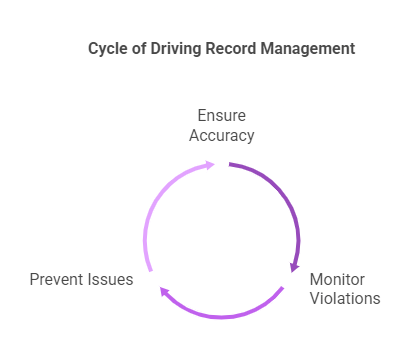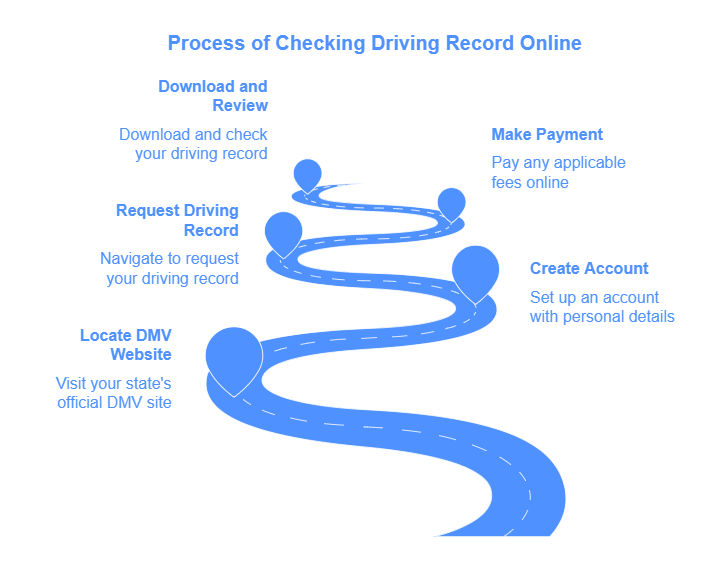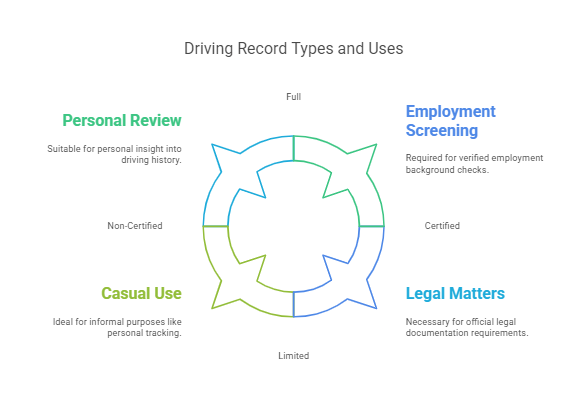Legal Aspects of Checking Your Driving Record
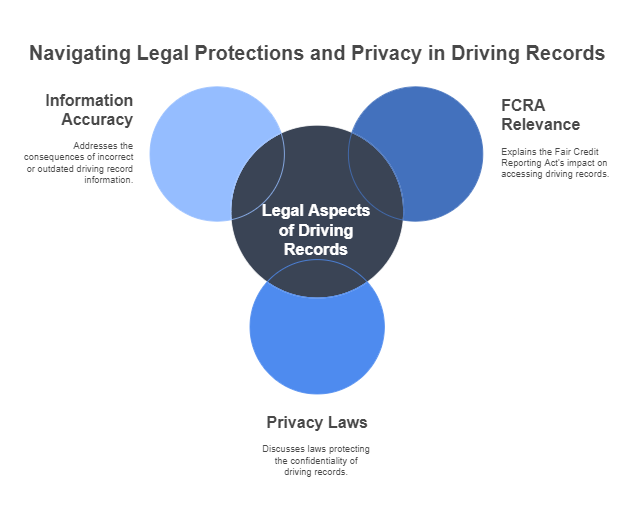
When it comes to checking your driving record online, it’s important to understand the legal implications surrounding the process. Your driving record is protected under privacy laws, and certain parties are allowed to access this information under specific conditions.
Fair Credit Reporting Act (FCRA) and Its Relevance to Driving Records
The Fair Credit Reporting Act (FCRA) is a key piece of legislation that governs how personal information, including driving records, can be used for employment and other purposes. When you check your own driving record or allow others to access it, the FCRA ensures that the information is used fairly and accurately. Here are some important things to know:
- Employer Access: Employers are allowed to check your driving record, but they must obtain written consent to do so. This is particularly important when the job requires driving or operating a vehicle. Employers must also inform you of any decisions based on your driving record.
- Accuracy and Reporting: The FCRA mandates that any driving record used for employment or credit decisions must be accurate. If there are errors in your record, you have the right to dispute them and correct them.
- Time Frame: The FCRA limits the reporting of certain negative information, such as traffic violations and accidents. In many cases, these items may only be reportable for a certain number of years, depending on the state’s regulations.
Privacy Laws Surrounding Driving Records
In addition to the FCRA, there are other privacy laws that govern access to your driving record. These laws vary by state, but here are some general principles:
- Who Can Access Your Record: Generally, only authorized individuals or organizations can access your driving record. These include employers (with your consent), insurance companies, law enforcement agencies, and certain government entities.
- Sharing Your Record: When checking your driving record online, you may be required to provide your driver’s license number and other identifying information to ensure that the record is yours. However, this data is protected under privacy laws, and the DMV is responsible for safeguarding your personal information.
Implications of Incorrect or Outdated Information
If your driving record contains incorrect or outdated information, it can have serious implications, particularly when it comes to employment or insurance rates. For example, an inaccurate driving history could result in:
- Higher Insurance Premiums: An error in your driving record can lead to increased insurance premiums, even if the violation wasn’t your fault.
- Employment Opportunities: If your driving record includes violations that are no longer relevant or accurate, it could hurt your chances of getting a job, especially in driving-related roles.
If you find an error on your driving record, you have the right to dispute it. The process for disputing errors on your record typically involves contacting the DMV and providing documentation to support your claim.
FAQs About Checking Your Driving Record Online
Here are answers to some frequently asked questions about how to check your driving record online:
1. How do I get my driving record from another state?
To obtain a driving record from another state, you need to visit that state’s DMV website and follow the instructions for requesting a driving record. Most states allow residents and non-residents to request records online, though you may need to provide additional documentation if you’re requesting a record from a state where you didn’t hold a driver’s license.
2. Can I check my driving record for free?
Some states provide a free driving record check for individuals, but most charge a fee, especially if you need a certified or official copy. Free access to your record is often limited to non-certified versions for personal use. However, fees for certified records typically range from $5 to $20.
3. How long does it take to receive my driving record online?
The time it takes to receive your driving record depends on your state and the type of record you request. In most cases, you can access a non-certified record almost immediately. Certified records or records requiring further verification might take a few days to process.
4. Will checking my driving record affect my insurance rates?
No, checking your own driving record will not affect your insurance rates. Insurance companies can access your driving record as part of their risk assessment, but your personal inquiry into your own record does not impact rates.
5. What do I do if I find an error on my driving record?
If you find an error on your driving record, you should contact your state’s DMV and request a review or correction. You may need to provide supporting documentation, such as court records, to prove that the information is incorrect.
Conclusion
Checking your driving record online is a straightforward and essential process that can help you maintain an accurate driving history, protect your personal information, and ensure that there are no discrepancies in your record. Regularly monitoring your driving record is important for a variety of reasons, including employment, insurance rates, and personal verification.
For employers, checking driving records is especially important for positions that involve operating a vehicle. Rapid Hire Solutions can assist in ensuring that your employment screening process is thorough, accurate, and compliant with relevant laws. By leveraging our professional services, employers can ensure that they are making informed hiring decisions based on clean, accurate driving records.
If you haven’t checked your driving record recently, it’s time to take action. Whether for personal peace of mind or professional reasons, having an up-to-date and accurate record can make all the difference.
Let Rapid Hire Solutions help you with your driving record verification needs, ensuring that you always have the most accurate and reliable information at your fingertips.

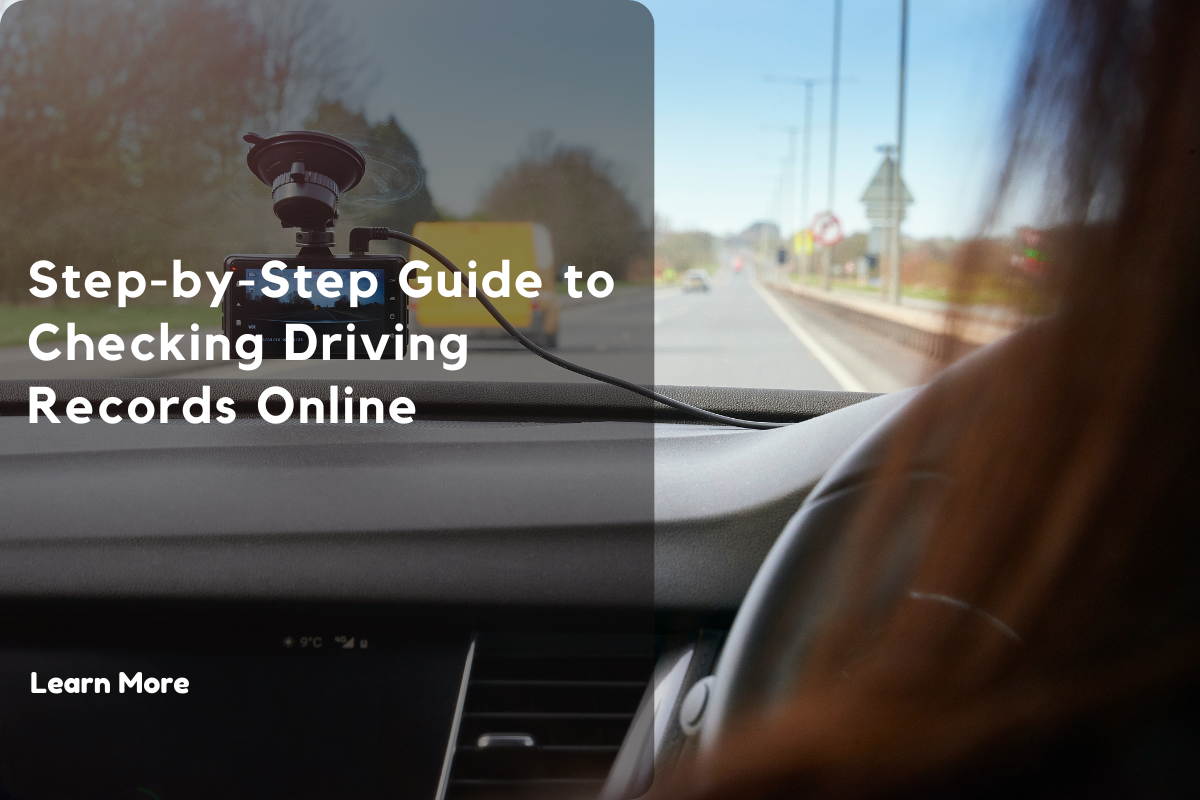 Introduction to Checking Your Driving Record Online
Introduction to Checking Your Driving Record Online